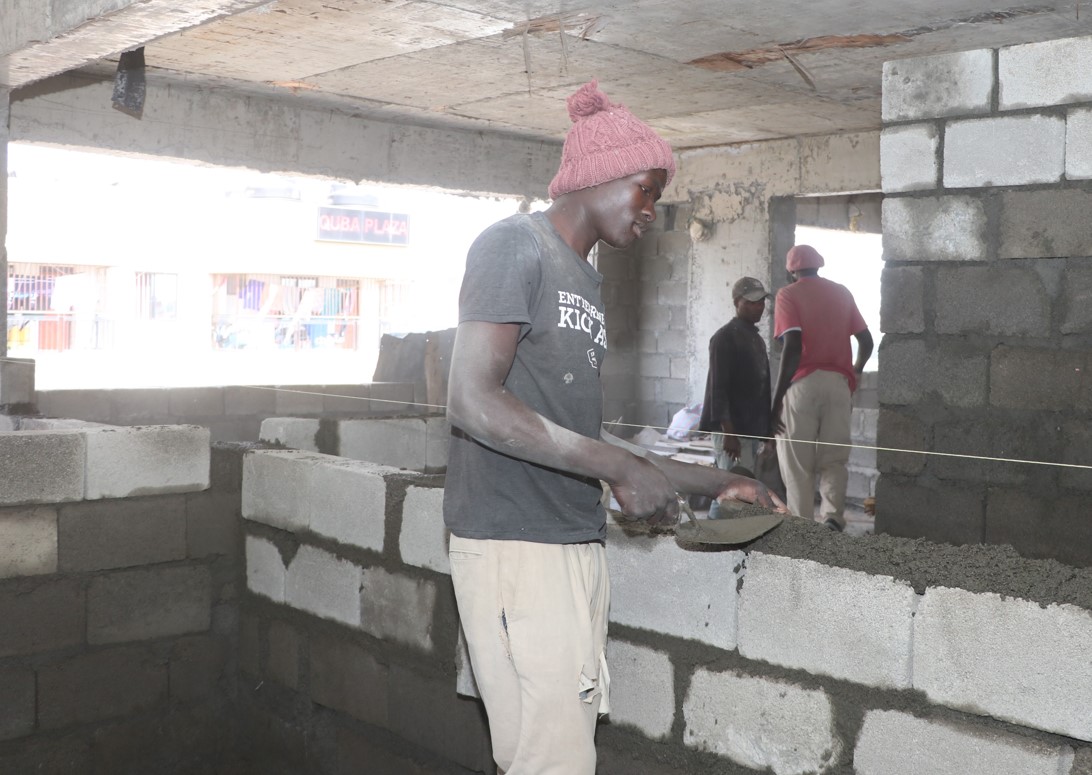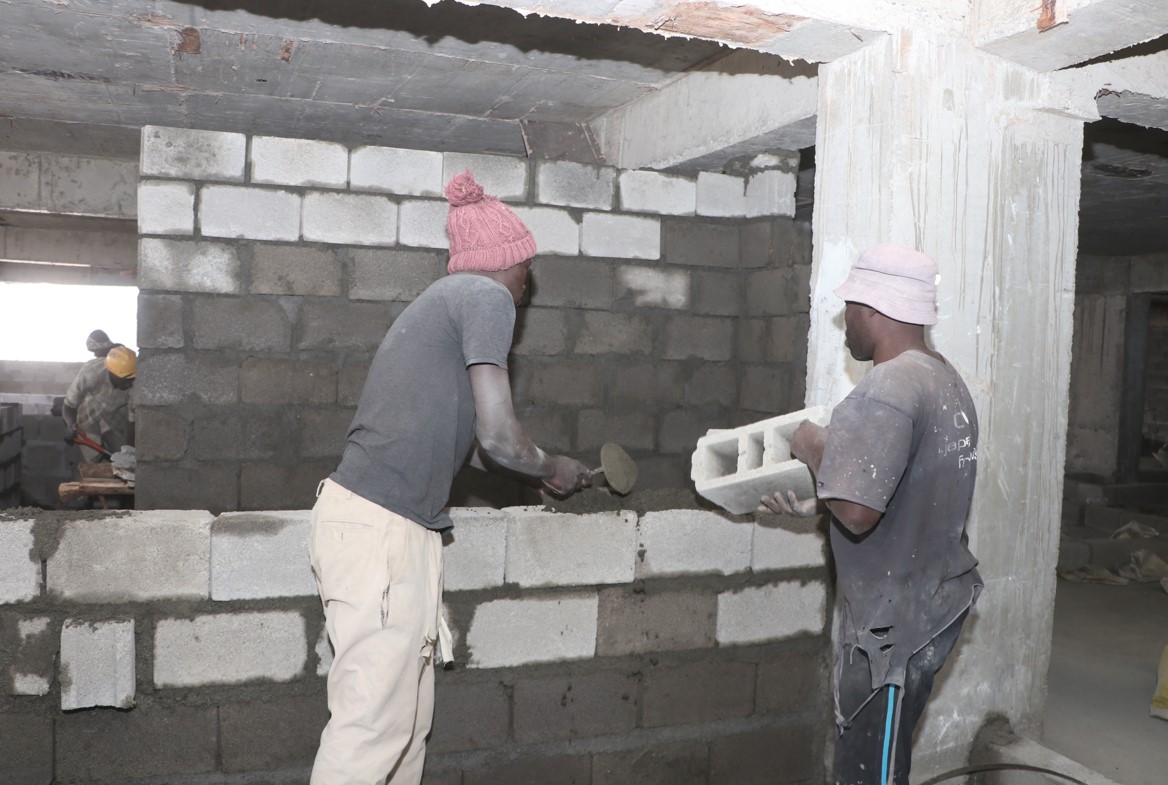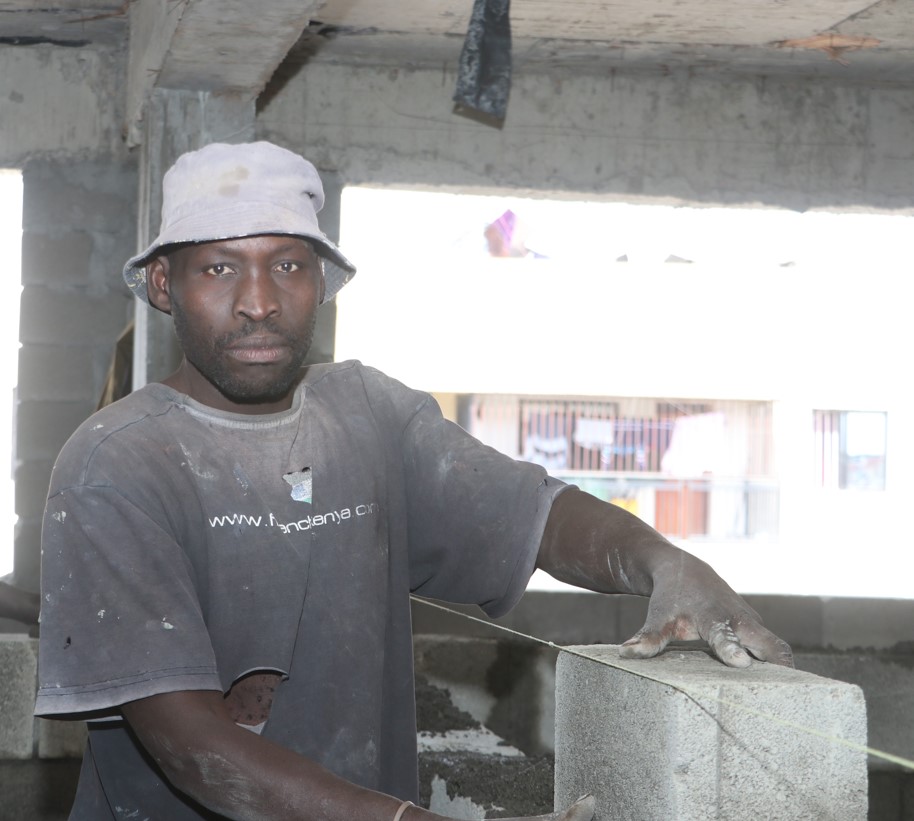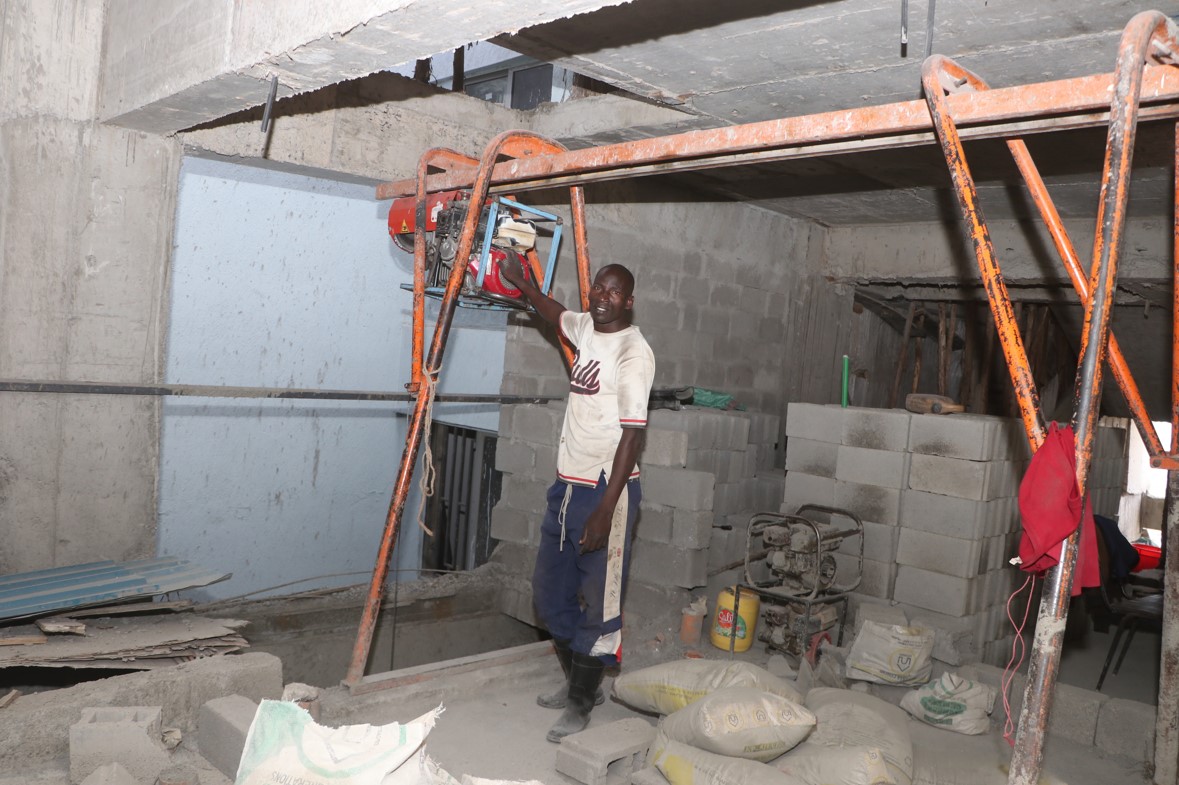The hidden wealth behind Kenya's construction labour market

In a society where white-collar professions often take precedence, individuals like Olawa and Oluoch advocate for the recognition and appreciation of manual labour.
Working as a labourer on a construction site is often viewed with reluctance by many young individuals.
The demanding nature of the job tends to deter enthusiasm among the majority. However, there exist individuals who have dedicated significant portions of their lives to this line of work and hold a contrasting perspective on construction labour.
More To Read
- Construction sector rebounds as cement demand hits record high
- Construction sector seen as Kenya’s weakest job creator in 2025, CBK survey shows
- Autopsy confirms fatal head injuries on construction worker found dead at Talanta Stadium
- Probe launched after body of missing construction worker found at Talanta Sports Stadium
- Construction industry braces for higher costs as new taxes kick in
- Businesses squeezed as government pending bills climb by Sh25 billion
Peter Olewa, now a seasoned mason, has been entrenched in the construction industry since 1995 and continues to find fulfilment in it.
"I commenced my construction endeavours in 1995, earning a mere Sh30 initially. However, within six months, through keen observation and collaboration with others, I honed my skills and transitioned into the role of a mason."
Olewa's decision to pursue work in the construction industry stemmed from limitations in accessing formal education.
"I delved into construction at the age of 15, opting for this path to later sustain my family and provide education for my children," he says.
 Erick Omondi and Peter Olewa at work in Eastleigh California ward on March 16, 2024. (Photo: Justine Ondieki/EV)
Erick Omondi and Peter Olewa at work in Eastleigh California ward on March 16, 2024. (Photo: Justine Ondieki/EV)
With a sense of pride, Olewa shares that his eldest child is poised to sit for his national exams this year, courtesy of his labour in construction.
Being the sole breadwinner for his family of six, Olewa emphasises the pivotal role construction work has played in their livelihood.
Financial management
"Construction has been my sole occupation, and it has provided a steady income stream since 1995. A skilled labourer typically earns between Sh1,000 to Sh1,200 shillings daily, enabling me to maintain a modest lifestyle," he adds.
Managing his finances judiciously, Olewa navigates his expenses with finesse. Hailing from Mlolongo, he affirms, "Despite the demanding hours, I've learned to manage my finances effectively, ensuring my family's needs are met. My monthly rent amounts to Sh2,000 shillings, and I've cultivated a habit of prudent spending."
 Peter Olewa at work in Eastleigh California ward on March 16, 2024. (Photo: Justine Ondieki/EV)
Peter Olewa at work in Eastleigh California ward on March 16, 2024. (Photo: Justine Ondieki/EV)
Acknowledging the challenges inherent in construction work, such as erratic work hours, he underscores the intrinsic rewards of perseverance.
"Despite the arduous nature of the job, the financial stability it offers makes it worthwhile. I encourage young men to embrace any legal employment opportunity that presents itself," he advises.
Echoing his sentiments, Erick Omondi, a fellow construction worker from Mathare, says, "I ventured into construction due to a lack of alternative employment options. As a manual labourer, I earn Sh500 daily, which suffices for my needs, considering the proximity of the worksite."
Cleophas Oluoch, another stalwart in the construction domain, shares his journey.
 Cleophas Oluoch at work in Eastleigh California ward on March 16, 2024. (Photo: Justine Ondieki)
Cleophas Oluoch at work in Eastleigh California ward on March 16, 2024. (Photo: Justine Ondieki)
"I embraced construction work in 2011 to avoid being out of employment. Over time, I've grown fond of this occupation, particularly appreciating the weekly pay schedule, which offers stability for my family," he says.
With three children relying on him, Oluoch underscores the importance of consistency in employment.
"This work may not be glamorous, but its reliability sustains my family. I advocate for young men to prioritize practical opportunities that ensure financial security," he says.
Highlighting the significance of networking, Oluoch emphasises its role in securing employment opportunities within the construction sector.
"Connections are invaluable in this field, facilitating access to consistent work opportunities. I derive immense satisfaction from the stability and camaraderie offered by this line of work," he says.
In a society where white-collar professions often take precedence, individuals like Olawa and Oluoch advocate for the recognition and appreciation of manual labour.
Their narratives underscore the dignity and sustenance afforded by honest hard work in the construction industry.
Top Stories Today













































